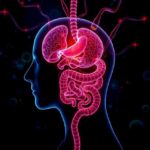The human body is home to trillions of microorganisms — bacteria, viruses, fungi, and other microbes — most of which live in your digestive tract. This complex and dynamic ecosystem is known as the gut microbiome. Over the past decade, scientific research has revealed that the gut microbiome plays a central role in maintaining overall health, far beyond just digestion.
From boosting your immune system to impacting mental health, metabolism, weight regulation, and even chronic disease prevention, the gut microbiome is proving to be one of the most powerful forces inside the human body.
What is the Gut Microbiome?
The gut microbiome refers to the vast community of microorganisms living in the gastrointestinal (GI) tract, particularly in the large intestine. Each person hosts a unique microbiome, shaped by genetics, environment, diet, lifestyle, and antibiotic use.
These microorganisms are not just passive inhabitants. Many perform essential functions, such as:
Breaking down complex carbohydrates and fibers
Synthesizing vitamins (like B12 and K)
Regulating immune responses
Protecting against harmful pathogens
Communicating with the brain via the gut-brain axis
Key Functions of the Gut Microbiome
1. Digestive Health and Nutrient Absorption
A healthy gut microbiome helps break down dietary fiber and other indigestible compounds through fermentation, producing short-chain fatty acids (SCFAs) like butyrate, acetate, and propionate. These SCFAs are crucial for:
Nourishing colon cells
Reducing inflammation
Supporting gut barrier function
Probiotic bacteria such as Lactobacillus and Bifidobacterium also aid in nutrient absorption, particularly calcium, magnesium, and iron.
2. Immune System Regulation
About 70% of your immune system resides in your gut. The gut microbiome trains the immune system to distinguish between harmful invaders and beneficial microbes. A diverse microbiota helps maintain immune balance, reducing the risk of allergies, autoimmune diseases, and infections.
Research links dysbiosis (imbalance in gut bacteria) to conditions like:
Asthma
Inflammatory bowel disease (IBD)
Rheumatoid arthritis
Type 1 diabetes
3. Mental Health and the Gut-Brain Axis
The gut and brain communicate through the gut-brain axis, a two-way link involving the vagus nerve, hormones, and neurotransmitters. The gut microbiome plays a role in producing serotonin, dopamine, and GABA — key neurotransmitters that regulate mood and anxiety.
Studies show that an unhealthy microbiome may contribute to:
Depression and anxiety
Cognitive decline
Autism spectrum disorders
Stress response disorders
4. Weight Management and Metabolism
Your gut bacteria influence how your body stores fat, regulates blood sugar, and responds to hunger hormones like ghrelin and leptin. People with obesity often show less microbial diversity and fewer beneficial bacteria.
Some gut bacteria extract more energy from food than others. An imbalance may cause:
Increased fat storage
Insulin resistance
Slowed metabolism
5. Protection Against Chronic Diseases
The gut microbiome affects inflammation, a key contributor to many chronic illnesses. A healthy microbiome may reduce the risk of:
Cardiovascular disease
Type 2 diabetes
Certain cancers (e.g., colon cancer)
Neurodegenerative diseases like Parkinson’s and Alzheimer’s
Causes and Consequences of an Imbalanced Gut Microbiome
What Causes Dysbiosis?
Several lifestyle and environmental factors can disrupt gut microbial balance:
Poor diet (high sugar, low fiber)
Chronic stress
Lack of sleep
Overuse of antibiotics or antacids
Alcohol or smoking
Environmental toxins
Signs of an Unhealthy Gut
Bloating, constipation, or diarrhea
Food intolerances or allergies
Frequent colds or infections
Unexplained fatigue
Poor concentration or brain fog
Skin issues (eczema, acne)
Mood swings or anxiety
How to Improve Gut Health Naturally
1. Eat a Diverse, Fiber-Rich Diet
Fiber is the primary fuel for beneficial gut bacteria. Aim for 25–35 grams of fiber per day from foods like:
Whole grains (oats, brown rice)
Legumes (lentils, beans)
Fruits (apples, bananas, berries)
Vegetables (broccoli, artichokes, spinach)
Nuts and seeds (chia, flax, almonds)
2. Incorporate Fermented Foods
Fermented foods naturally contain probiotics, which help replenish good bacteria. Include:
Yogurt with live cultures
Kefir
Sauerkraut
Kimchi
Miso
Kombucha
Tempeh
3. Use Prebiotics
Prebiotics are non-digestible fibers that feed probiotics. Top prebiotic foods include:
Garlic
Onions
Leeks
Asparagus
Chicory root
Green bananas
4. Take a Quality Probiotic Supplement (If Needed)
Consult your healthcare provider before starting any supplement. Multi-strain probiotics are often more effective, especially those with Lactobacillus and Bifidobacterium species.
5. Avoid Unnecessary Antibiotics
While antibiotics are life-saving, overuse can wipe out beneficial bacteria and lead to resistance. Always take them only when prescribed.
6. Manage Stress
Chronic stress alters gut permeability and bacterial composition. Try:
Yoga or meditation
Deep breathing
Adequate sleep (7–8 hours)
Nature walks
Journaling
7. Exercise Regularly
Moderate exercise supports a healthy gut by:
Increasing microbial diversity
Reducing inflammation
Enhancing digestion
Aim for 150 minutes of moderate activity per week, such as walking, cycling, or swimming.
Gut Microbiome and Children’s Health
The first few years of life are crucial for gut microbiome development. Birth method, breastfeeding, antibiotic use, and early diet significantly affect a child’s microbiota. A balanced gut in early life supports:
Immune system development
Healthy weight
Brain growth and learning
Testing and Monitoring Gut Health
Advanced stool tests like GI-MAP or uBiome can analyze gut bacteria diversity and identify imbalances. While not always necessary, they may help individuals with chronic gut issues or autoimmune conditions develop a targeted healing plan.
Future of Gut Microbiome Research
The microbiome is one of the fastest-growing fields in science. Promising areas of research include:
Microbiome-based therapies (e.g., fecal transplants)
Personalized nutrition plans
Probiotic treatments for depression or anxiety
Gut microbiome manipulation to fight cancer
As we deepen our understanding, we may one day tailor diets, medications, and health regimens based entirely on an individual’s microbial profile.
Final Thoughts
Your gut microbiome is not just a digestive assistant—it’s a powerful, active organ in its own right. From mental health to immunity, metabolism to disease resistance, this invisible ecosystem shapes nearly every aspect of your well-being.
By adopting gut-friendly habits — eating a fiber-rich and diverse diet, incorporating fermented foods, managing stress, and avoiding unnecessary antibiotics — you can nurture your microbiome and unlock its incredible healing potential.
FAQs
Q1. What destroys gut microbiome health?
A: Excessive antibiotics, junk food, sugar, alcohol, chronic stress, and poor sleep can all disrupt your microbiota.
Q2. How long does it take to restore gut health?
A: It may take 2–12 weeks to notice improvements, depending on the severity of imbalance and your lifestyle.
Q3. Is yogurt enough for gut health?
A: Yogurt is a good start, but diversity is key. Combine it with other fermented and fiber-rich foods.
Q4. Can gut health affect skin?
A: Yes. Gut imbalance can cause inflammation that shows up on the skin as acne, eczema, or rashes.
Related posts:
 How Stress Affects Digestion – Gut Health & Mental Wellness Connection
How Stress Affects Digestion – Gut Health & Mental Wellness Connection
 Air Pollution and Human Health: The Hidden Dangers We Ignore
Air Pollution and Human Health: The Hidden Dangers We Ignore
 The Secret to Being Healthy Is Hidden in the Kitchen
The Secret to Being Healthy Is Hidden in the Kitchen
 Unleashing the Chanakya Within You: Timeless Leadership Lessons for Personal and Professional Success
Unleashing the Chanakya Within You: Timeless Leadership Lessons for Personal and Professional Success
 Impact of Blue Light & Screen Time on Eye Health and Sleep | Digital Wellness Tips
Impact of Blue Light & Screen Time on Eye Health and Sleep | Digital Wellness Tips
 The Healing Power of Nature: How Green Spaces Improve Mental Health
The Healing Power of Nature: How Green Spaces Improve Mental Health
